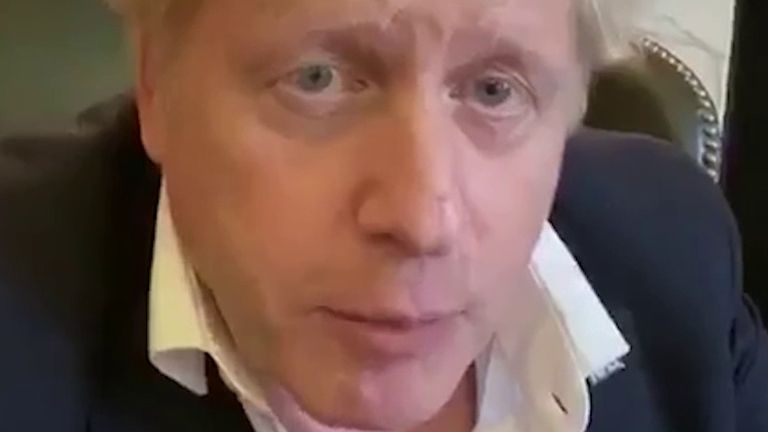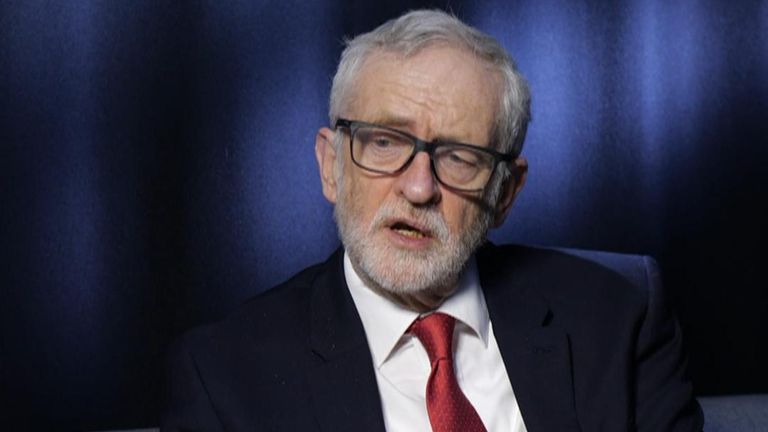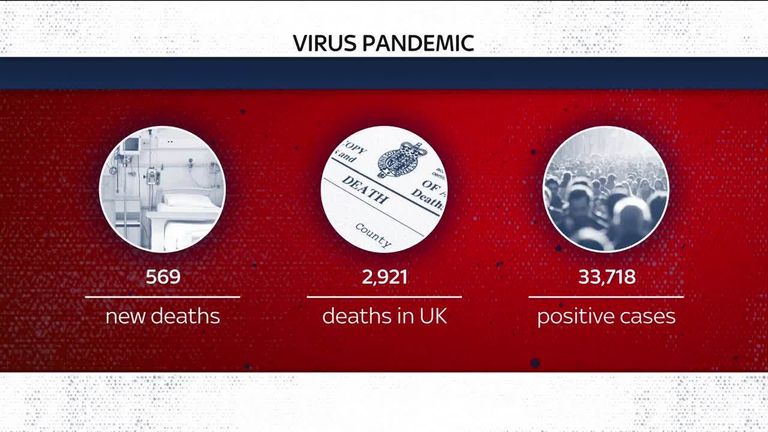The government has unveiled a five-point coronavirus action plan in a bid to achieve 100,000 COVID-19 tests per day by the end of April.
Matt Hancock set out the strategy to achieve a "significant" increase in testing for COVID-19, the disease caused by the coronavirus, at the government's daily news conference.
The "five-pillar" plan involves:
- Swab testing at Public Health England and NHS labs;
- Using commercial partners, including universities and private businesses, to establish more swab testing;
- Introducing antibody blood tests to determine whether people have had COVID-19;
- Surveillance to determine the rate of infection and how it is spreading across the country;
- Build an "at-scale" diagnostics industry to reach 100,000 tests by end of April.
 Lockdown: The dos and don'ts
Lockdown: The dos and don'ts
Mr Hancock said the 100,000 figure included both the general public and NHS staff.
He vowed that health service staff will be able to get tested for the coronavirus "absolutely before the end of the month".
Mr Hancock added: "With 5,000 tested since (staff testing) started at the weekend we've clearly made significant progress."
He also announced that £13.4bn in historical NHS debt would be written off to help hospital trusts fight the virus.
Mr Hancock, who tested positive for COVID-19 last week and came out of self-isolation on Thursday, said he returned "redoubled in my determination to fight this virus with everything I've got".
 How to contain a global pandemic
How to contain a global pandemic
"And we will strain every sinew to defeat it once and for all," he said.
"And I will stop at nothing to make sure that frontline staff have the right equipment so that they are safe and can have the confidence they need to do their jobs."
The ambitious pledge comes after criticism of government efforts to ramp up testing and disquiet that the UK is lagging behind other countries.
Mr Hancock addressed this criticism during the news conference, saying the fact that the UK lacked a large diagnostics industry meant it was having to start from a "lower base" than the likes of Germany.
 PM admits more coronavirus tests needed
PM admits more coronavirus tests needed
The health secretary said a country-wide shortage of swabs had been "resolved", but there was still a "global challenge" around sourcing the reagent chemicals needed for the tests.
Downing Street said earlier that it had finally reached its target of 10,000 daily tests on Tuesday, with 10,412 carried out on that day in NHS and Public Health England laboratories.
Prime Minister Boris Johnson's official spokesman said 2,800 members of NHS staff have been tested at drive-through facilities, although "significant numbers" had also been tested at NHS and PHE labs.
Speaking during a conference call with journalists earlier on Thursday, the spokesman added that the government was working on a number of measures that would allow for "hundreds of thousands" of tests to be carried out each day.
 Corbyn criticises COVID-19 testing
Corbyn criticises COVID-19 testing
"We acknowledge that more needs to be done in relation to testing," he said.
"We need to be testing more people and we need to be making progress very quickly."
An increase in testing of NHS staff would potentially enable thousands of them who are self-isolating, because they or their family members have shown symptoms, to return to work once they know they are clear of the disease.
In the wake of complaints about a shortage of swabs, the NHS has developed a new specification for the swabs to carry out the tests which has been validated and shared with potential manufacturers.
 UK COVID-19 deaths up by 569 to 2,921
UK COVID-19 deaths up by 569 to 2,921
"We think that provides us with a way forward to complete hundreds of thousands of tests," the Number 10 spokesman said.
A large-scale testing laboratory opened in Milton Keynes last week, with two more opening next week in Cheshire and Glasgow to cover the north of England and Scotland.
At the same time, the government is working with nine potential suppliers on developing an antibody test for the coronavirus.
This would show whether people have had the virus.
But the Downing Street spokesman preached caution, saying it was essential that they were accurate.
Other countries had introduced antibody tests which were not accurate with "significant adverse consequences", he said.
The spokesman revealed the government had previously been offered tests which had not met the required levels of accuracy and would not have been safe to use.
More follows...